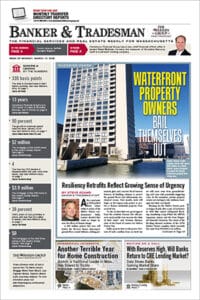A new study into the feasibility of building an underground rail link between North and South stations in Boston will be done by Arup USA Inc., an engineering firm that won the $1.5 million state contract, transportation officials confirmed Wednesday.
The contract was awarded on Friday by the Massachusetts Department of Transportation’s Office of Transportation Planning.
According to MassDOT, the study will update a prior assessment done on the proposed tunnel that supporters say would create an uninterrupted rail corridor through Boston to Maine and Canada.
The study is to be completed by spring 2018, officials said, and will be used to decide whether further technical or financial analysis is warranted.
Arup, which has offices around the world, including one in Boston, worked on the Institute of Contemporary Art building in the Seaport, as well as multiple facilities on the campuses of Harvard and the Massachusetts Institute of Technology, according to its website.
The firm also did the feasibility study for the “existing Lowell Courthouse,” and engineered wind-powered signage for a “historical walking trail” through Boston.
Gov. Charlie Baker has expressed some skepticism about building another tunnel in the city to link North and South stations, but agreed to go forward with the study. The proposed project has prominent backing from former Gov. Michael Dukakis and Rep. Seth Moulton.
A working group of public officials who support the rail link has been holding private meetings on Beacon Hill for years.
State procurement officials in March issued a bid solicitation for the reassessment contract, listing it as a professional engineering services opportunity with a total cost of $1.5 million and an eight-month timeframe for the work, which will include a project website and public meetings. The vendor hired to examine the project would also consider whether the tunnel link would feature two or four tracks and whether there would be a “Central Station.”
Rail link supporters have tried for years to put the project on the state’s planning agenda, encountering resistance from critics who worry about a rail link’s potential high cost and disruption the project might cause in downtown Boston.
A draft environmental impact report for the project was undertaken from 1995 to 2003, but the project was not pursued. According to the Massachusetts Department of Transportation, the rail gap, in addition to preventing connectivity between two rail hubs, “imposes a number of other inefficiencies and costs that have prompted interest over the years in linking the system.” In its draft scope for the reassessment, MassDOT officials wrote that “much has changed since 2003 in construction technology, interest rates, land use, and transportation demand.”
According to documents, transportation officials plan to accomplish a lengthy list of tasks, including identifying and costing out right-of-way needs; confirming or amending engineering assumptions; updating “potential order of magnitude costs” based on a review of comparable projects and the latest construction and railroad technology, and related best practices for design, procurement and project management; updating ridership estimates; and examining potential service plans and potential project benefits.




